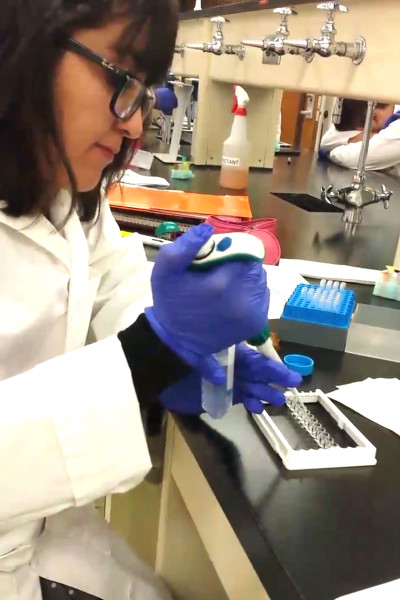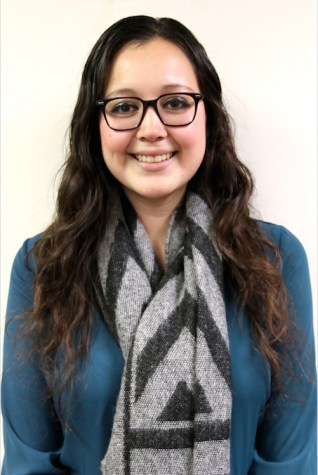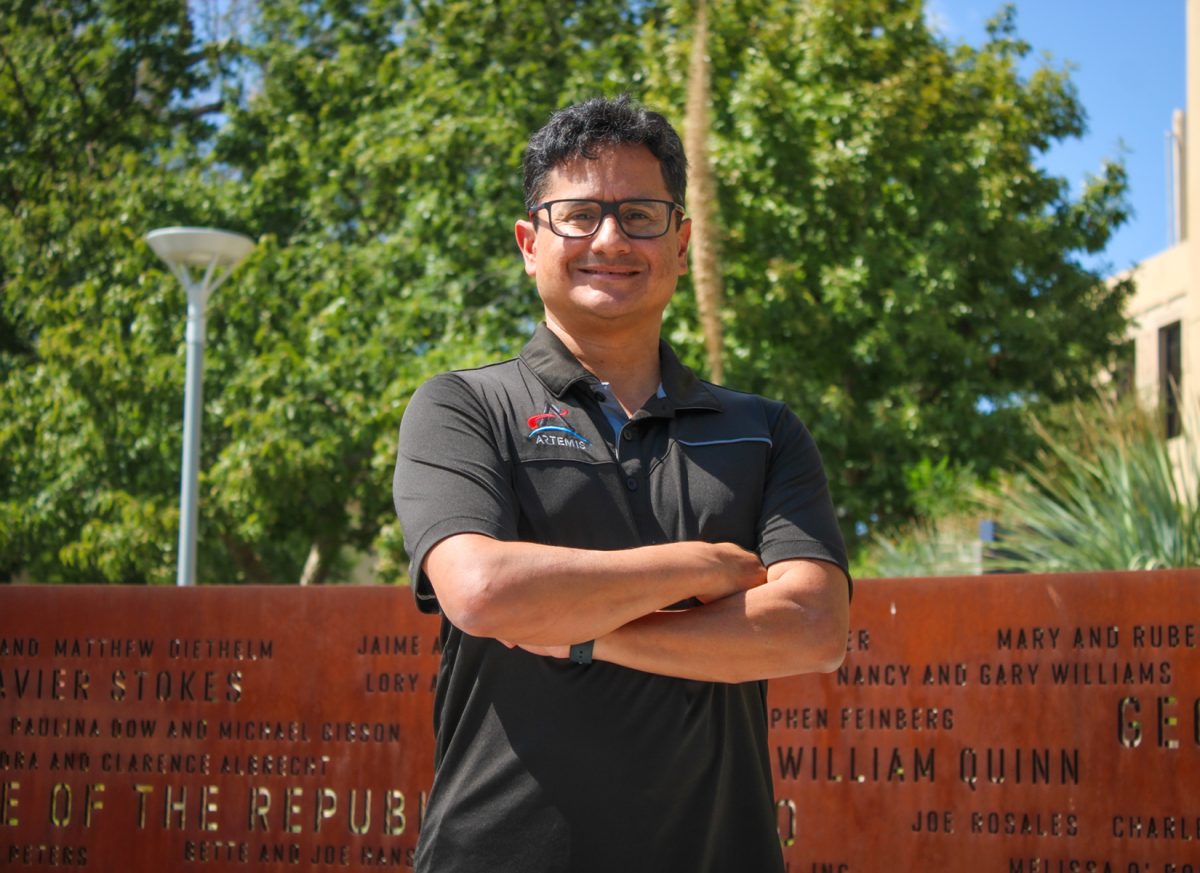Women remain underrepresented in the fields of science, technology, engineering and mathematics, according to a 2013 study done by the National Science Foundation.
Women make up 58.1 percent of the overall workforce in the nation, according to the Bureau of Labor Statistics, but continue to have disproportionate numbers in mechanical engineering (5.5 percent) electrical engineering (8.8 percent) and industrial engineering (17.8 percent) fields, as well as environmental scientists and geoscientists (28.9 percent) among others.
Anahi Marquez, senior cellular and molecular biochemistry major, plans to apply for medical school after graduation. She will also be participating in an internship during the summer in Ireland, where she will conduct research on prostate cancer and radiation therapy treatments.
“After my niece was diagnosed with leukemia, I have a greater interest in cancer biology. So I applied to the program to gain experience on the subject, which I hope I one day get to work with for the rest of my life,” Marquez said.
Both of Marquez’s mentors in Ireland will be women.
“Although STEM is mostly made up of men, with every year, women are getting up there with them. Many of my female professors at UTEP have done it and they encouraged me to do it as well,” Marquez said. “I am not really intimidated, it’s more like a motivation to one day have equal representation in STEM.”
Marquez plans to do research in El Paso, but if her education granted her the opportunity to leave the city, she would still return to
help her community.
“Hard work will always pay off. (Women) should never get discouraged because we can achieve anything we put our whole heart into,” Marquez said. “It also takes a while to get the hang of organic chemistry.”
Paloma Muñoz, senior cellular and molecular biochemistry major, will be doing her own research in breast cancer alongside Dr. Giulio Francia, assistant professor in biological sciences at UTEP, once she graduates.
“I’ve always wanted to do research, but I have been so busy these past four years. I did an internship at Texas Tech last summer and I loved it,” Muñoz said. “It helped me so much in my classes. Whenever professors would discuss research papers, I knew exactly what they were doing.”
Given her experiences on campus, Muñoz believes that it is always going to be hard for women who are in the STEM field.
“One of my professors told me that when she was doing research, her principle investigator paid no mind to her when she wanted to voice her opinion. I feel that if I do continue with research, I will be prepared because of my professors, but difficult because of my gender,” Muñoz said. “This is still a man’s world. I will truly have to challenge myself to prove that I am capable.”
Muñoz plans to one day leave El Paso to continue her research elsewhere so that she may grow in the field.
“There is no other feeling than proving people wrong. I say this in the most humble way possible, especially proving men wrong intellectually,” she said.
Sarah Abu-Issa, senior biological sciences major, will be applying to Texas medical schools this summer after graduation to pursue a career in pediatrics, along with other specialties.
“When I was in middle school, I would spend time in my mom’s classroom before the bell rang—she’s a special education teacher—and play with her students. I was intrigued by their illnesses and wanted to learn more about them,” Abu-Issa said. “I’ve also got the opportunity to shadow pediatricians and I really loved it.”
Abu-Issa believes that women can change the face of medicine and the STEM field. In the instance where she encounters a mother as a pediatrician, she believes that it can create a more trusting patient-doctor relationship.
“It’s great that our society is moving forward to some extent in terms of gender equality. It’s empowering that women now have the resources and advantages to be on the same playing field as men,” Abu-Issa said. “I think that having more women working in the STEM field will help the field progress. Who knows? Maybe the cure to cancer is locked inside the mind of a woman.”
Abu-Issa’s female cousins in the Middle East are engineers, computer scientists or have a math degree. She believes that women do have the potential and that America needs to catch up with other countries.
“Women can be just as good as men, if not better, in the STEM field. They can succeed just as much as anyone else in their field,” Abu-Issa said.
Lorain Watters may be reached at [email protected].












